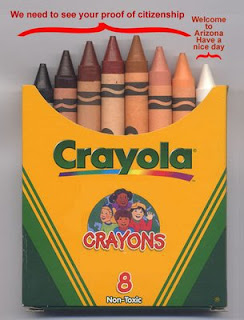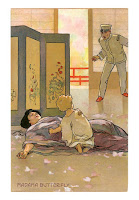I knew upon accepting this position that I would have to adjust to this unfamiliar environment, but I didn't anticipate the extent to which the environment could impact my teaching. After all, the English and Media Studies department hired me specifically for my Ethnic Studies and Asian American literature background. The professors and administrators all talk about wanting to diversify the student and staff population, as well as the curriculum. And my department chair is pretty much giving me free reign in how I want to design my courses. From what I can tell, the university wants me to teach the students about social justice, train them to think critically about the world and their place in it, and encourage them to be creative.
But mission and practice are two very different things, and impacting the culture of this university is going to be constant uphill climb. First off, I wonder if a specialized business school can ever be a place where a literature/cultural studies practitioner can thrive. In the short time that I've spent with my students, I can tell that they're generally uncreative and conservative in their thinking. They're not so interested in challenging the status quo. Their idea of "social justice" and "ethics" probably means "how to make a profit without being a total asshole." A word like "counterhegemony" is definitely not in their vocabulary. (Case in point: On the first day of my expository writing class, I had the students read a Michael Pollan essay, "We Are What We Eat," which isn't doesn't even promote any particular political agenda but simply describes the ways in which our food industry is entirely made up of corn. One of my students got really pissed and said, "Who cares so long as it makes money?") I suppose this shouldn't be at all surprising, because it probably takes a very particular kind of 17-year-old to commit to a major like Accountancy and close off all other options by attending a school where you can't major in much else. I just don't understand that kind of focused channelling. Aren't we supposed to float in "undeclared" land and figure out what we really like before we resign to being "practical"? I remember thinking the same thing about a girl I knew in college who said that she always wanted to be a dentist. I definitely found her scarier than the goth girl who majored in ethnomusicology and performed spoken word in the middle of the quad.
This isn't to say that my students aren't bright or inquisitive. On the contrary, my freshmen in my expository writing class pepper me with tons of questions and exhibit pretty sharp close-reading skills. Aside from a few knee-jerk reactions, they've been very willing to engage in discussion, however unfamiliar the topics may be. It's the juniors and seniors in my Asian American literature class that lend me to believe that their curriculum is doing such a good job and conditioning them for their chosen professions, that it's completely foreclosing them from any other types of thinking. They've been trained so well in tasks like estimating profit margins and understanding audit regulations, they aren't so good at seeing the bigger picture.
On the first day of my Asian American literature class, I introduced to the students some key issues that one really can't avoid talking about in an Asian American literature class: racism, immigration, citizenship, class, labor. I asked them to think of current debates related to these topics. I was dismayed to find out just how little they've heard about Arizona's SB 1070, how difficult it was for them to name one example of economic unfairness, how uneasy they are when they're asked to talk about race. And I don't think I even hit them all that hard. I introduced them to the class by playing a song entitled "We Belong" by Asian American hip-hop artists Magnetic North and Taiyo Na, figuring that they would enjoy some music by people not much older than themselves. The students seemed to enjoy the song well enough, and they were able to identify the themes of the song: the trials of being a migrant worker, racial stereotyping, poverty. But when asked to reflect on the themes (as well as the form in which these themes are being articulated), they exhibited resistance. One student, who is Asian American, declared that he had seen Magnetic North perform live and had decided that he "hated" them. When I asked him why, he initially said that he didn't understand why Asian Americans should perform "black" music, and then revealed that because he never experienced racism before in his life, he didn't understand why these artists would make a deal about it.
In my view, the student experiences racism regularly whether he notices or not, because the society in which he lives is one grounded on white privilege. But I can't fault him for not sharing this view, for growing up never having to doubt American meritocracy, for never experiencing the sting of a racial slur. But the refusal to see beyond his own experience and acknowledge validity of the experiences of others is what bothers me. What bothers me even more is the fact that none of his classmates contradicted him.
I certainly had plenty of students like him at my previous institution, but I could always count on other students to offer dissenting opinions to spark some productive discussion. And I think that's the main difference between the large state school and the small private one-- For every student who wanted nothing but to climb up the corporate ladder, there was one who organized labor strikes as an extracurricular activity. And the reason for this diversity isn't just because of size of the university or the fact that it's public; the university has also instituted departments and programs that foster different kinds of learning. While disciplines like Ethnic Studies are always being threatened at any institution, the legacy of their existence, at the very least, offers a space where students can question the very institution in which they are learning. So the aerospace engineering major may very well have to ask herself how she feels about learning how to build weapons used to blow up other countries.
I'm not so naive to say that the large public university churns out socially-conscious world-changers. Quite the contrary. But at the very least, I was able to stand firm in the belief that my expertise was legitimate, that it played a good and necessary role in my students' education. And perhaps that's even more true at my current job. Certainly, if I were to get my students to think in ways they aren't asked to in any of their other classes, that should be even more gratifying than teaching to those already in my corner. I guess I wish that I was working in a culture where I don't have to sell my class to my students and pitch it at a level suitable for students who never think about the sorts of issues I discuss. I wish that I was simply operating in a system that already has use for my work, rather than feeling as though I've been hired to start a system from scratch. I wish I was at a place where I can feel like a normal professor rather than a radical one. Oh well. I guess I'll just treat this new job as a challenge and a learning experience! I'm up for it.

